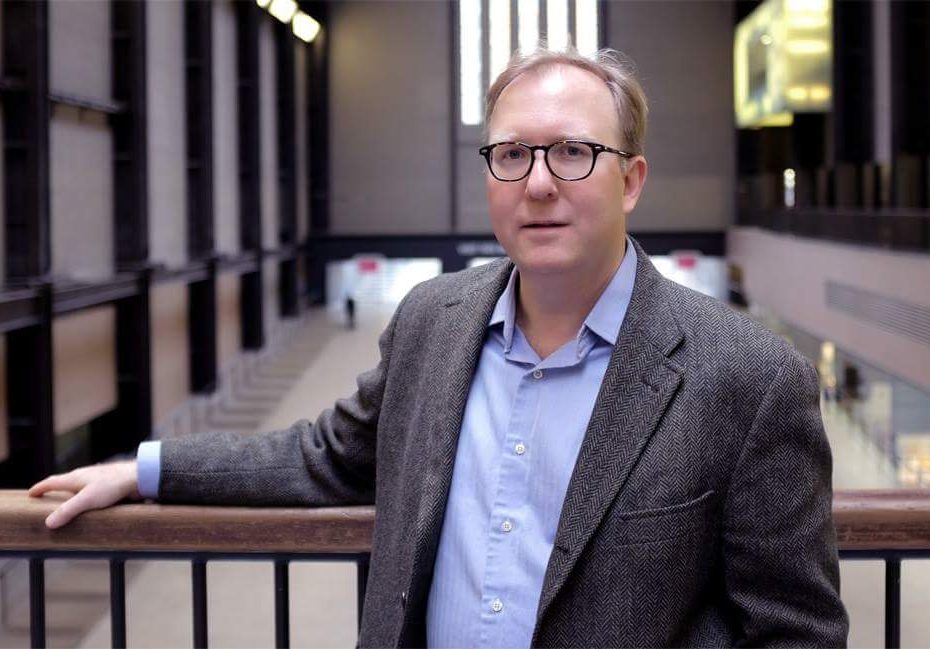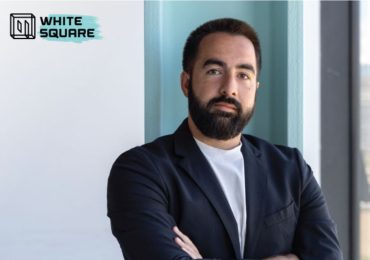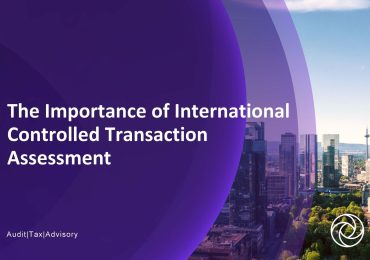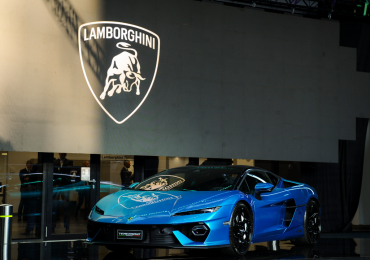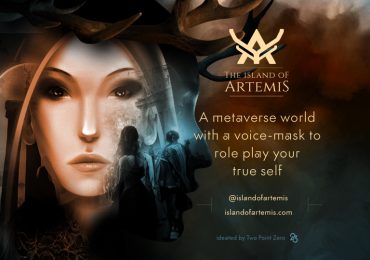“The so-called modern world has many features that are perfectly recognizable to historians in the Middle Ages”, – says Milo Jones when I ask him whether the new order bestowed upon the world with the beginning of the war in Ukraine. In Jones’s vision, the new equilibrium the planet had entered is a multipolar world with a few powerful state actors and multinational tech companies, or important non-state actors that must be taken into consideration. This system, it turns out, closely resembles the Middle Ages, when kings battled barons, all fighting for their interests.
“Aha!”, – I think during the interview. Our world has a medieval vibe; the pandemic is a cherry on top. It is what Milo told me laughingly: “I would warn you that the Middle Ages was also a time of new plagues. I’m glad we don’t live in that era”. Another thought I had, is that clichéd history repeats itself, repeated so many times that it lost its value, one way or another. Yet, as it turns out, there is truth to it.
Milo Jones is a great interviewee with whom I could talk for hours. We met in the lobby of the Rooms Hotel in Tbilisi. “It’s my second time in Georgia”, – Milo told me, the first time being in 1984. “It was a different country back then”, – I told him. We have talked for a bit about current affairs but quickly transitioned to the discussion of the Russia-Ukraine war, Georgia, and its function in what appears to be a new world order and technologies, as the intersection of these two is where Milo’s lies. What follows is a transcript of our conversation.
Dr. Jones, I would like to pick up on something you said during our previous encounter about Ukraine transforming into a new Israel. How do you see this happening? Is it a good scenario?
What I meant by a new Israel is this idea of constraints applicable to anything whether it is a work of art or a nation. On the one hand, everyone looks at resources, but in some other ways, your disadvantages also shape you. I do not see Ukraine surviving as anything except a strong military power receiving help from the West, but also in its ways, innovating and betting on nobody for its defense, finally but itself. This is the circumstance in which Israel has found itself for the last seventy-five years.
In addition, like Israel, Ukraine has a large body of people skilled in many things like IT. It has a well-performing military with a strong sense of nation and self. In some ways, that is Vladimir Putin’s ultimate gift – the creation of Ukrainian nationhood, or at least the maturation of Ukrainian nationhood. They are not going back to where they were in January of this year. Ever. That is the sense of birth and that you can rely only on yourself. It has historically had a strong arms industry, a remnant of the Soviet Union. It should make most of that strength the same way Israel does.
While Israel is certainly no colony of the West, to put it mildly, that is the accusation. I can see similar accusations being made against Ukraine, including that it will be a battering ram for NATO. We are already hearing that, but the reality is – Ukraine is a battering ram for Ukraine. When I talk about Ukraine as a new Israel, to me that is the most positive aspiration it can have. I would remind you that Israel is also quite a fractious society; there are plenty of fights about what should Israel be and how should Israel behave. So, none of this is saying there is one Ukraine in that sense. It is just saying that you can fight among yourselves but present a formidable picture to the outside world. To me, that is a positive aspiration for Ukraine.
Does this entail a constant war between Ukraine and Russia, as is the case with Israel and its neighbors?
I cannot see a circumstance of Ukraine achieving a full-fledged peace certainly while Vladimir Putin lives and breathes. So, effectively short of an outright Russian defeat that is internalized by the Russian people as a defeat that, in some sense, confers legitimacy on Ukraine. I think there is still a feeling not just by Vladimir Putin, but among the Russian elite that Ukraine is not a real country. Maybe they do not want to rebuild the Soviet Union, but let’s be honest: “We are all Slavs together. We all speak Russian”. This, of course, is idiocy. Great Britain, Ireland, the United States, Canada, and Australia all speak English, but oddly enough, we are separate countries, and we all get it. Russia’s got to digest that idea. Just because you speak the same language does not mean you run from Moscow. Just because the historical roots of the Russian state lie in Kyiv does not mean you are the same country either, because the historical roots of the United States, in some ways, line in Britain but that does not mean the United States could claim ownership of Britain. Thus, unless Russia historically grows up sometime soon, Ukraine will remain under threat.
What is the new world that we have entered ever since the war in Ukraine began? If there is such a thing, of course.
I see the war in Ukraine as reflecting the new world rather than creating the new world. I see it as a symptom of a multipolar world. So yes, the United States remains the most powerful force, but there are other powerful countries and there is a lot of room for allies to play one side off against the other in a way that there has not been for many years. We have a phrase at the Center for the Study of Digital Life: “Digital Retrieves the Medieval”. One of the things we mean by that is that the so-called modern world has many, many features that do not fit with contemporary political science’s view of how modern states work but are perfectly recognizable to historians in the Middle Ages. I am talking about things like kings and nations that are very powerful. Kings must deal with barons, which are not complete state actors, but you better account for them. By that I mean everything from Australia having to negotiate with Baron Mark Zuckerberg, so to speak, to even non-state actors wielding serious military force.
It is a measure of the degree of crisis one sees in the Russian state that by far the most effective military unit of the Russian army is a private military company. It’s a band of mercenaries. The state itself is less effective than a non-state actor. My country just lost a twenty-year war to what amounted to a non-state actor – The Taliban and in some sense Al-Qaeda. Non-state actors and countries are recognizing them. Did you know that Denmark has an ambassador to Silicon Valley? They have decided that if we, the government of Denmark, are going to have an impact on the well-being of our citizens, we need to talk to Facebook and Apple, Netflix, and Google every bit as much, as we need another new outpost in the neighbor, less obscure country.
We are seeing many features of the medieval world. Of course, we are all worried about wealth inequality because we assume that modernity would bring a growing world middle class. Yet, what do we have? We have a transnational aristocracy of very wealthy people who are most interested in one another and the meeting at Davos than they are with the peasants. I have to say to a great degree, that is not entirely foreign to people who have studied the Middle Ages. Right? I would warn you that the Middle Ages was also a time of new plagues. I’m glad we don’t live in that era. (Laughs.) The Middle Ages was also a time of new heresies, new religious beliefs, and a lot of religious ferment. I look at nut bags from QAnon during the storming of the U.S. Capitol in January and I say: “Wow. Yeah, it is very easy to get new cults going in the digital age”.
We assumed the modern era was going to be what I call the Star Trek world – an ever-closer union, a global federation. In the old Star Trek, the captain is American; of course, that makes sense. (Laughs.) But, you know, there is Mr. Sulu. There is Mr. Spock. There is Lieutenant Uhura. It’s diverse. There’s Scotty. There is even an alien. How diverse can you be? Everything was going to happily go that way. Instead, we are going back to doggy dog medieval non-state actors – a very different identity from the global identity we all expect. I don’t see the Chinese and the Russians getting on board a big global happy federation any time soon. If you are waiting for the UN and the WTO to solve your problems, I’m afraid you’ve got a long wait.
Let’s talk about Georgia. There was the Bucharest Summit in 2008, quickly followed by the Russian invasion of Georgia. The recent histories of Georgia and Ukraine are quite similar in this regard. How should Georgia act in this context?
There is the answer I want to give and there is an answer I have to give. I will give you both. The answer I want to give is that Georgia is Western; Georgia is European. Georgia resembles Southern Europe and should seek to fully embrace and identify with that element of its past and present. Yet, I am not sure the European Union is ready for that. The war in Ukraine creates a real crisis for the EU, not in the short term, but in the long term, because in the long term, Europe was about peace, security, and trade. “Let’s just pretend that geopolitics is over” – was their motto. “We will use soft power and sooner or later, the world will catch up with us”.
Everyone talks about America having this sense of exceptionalism, but Europe had it too. The European Union also developed a sense of exceptionalism. “We are prosperous and free and have nice welfare states and avocado toast and cappuccino, and thirty days of holiday a year. The rest of the world will one day catch up and join us. They will join us and sign me a key and all will be well”. Well, we know that such a world is gone, but we don’t know how Europe then defines itself. Is it just Europe plus NATO? Will it continue to outsource its military needs to NATO? I don’t know.
I think Georgia must, as it has, continue to live with ambiguity. What do I think that means? Let’s face it. The better the Georgian state functions domestically, the louder Georgia’s voice will be internationally, and the more leverage Georgia has insofar as the Georgian government can do things like build roads, provide decent health care and education, collect taxes, and enforce laws in an objective matter. We are talking about the basic stuff. Impartial institutions, protection of minority rights, and a regular, orderly change of government. Once you get those three things right internally, Georgia’s external options go up. Whether that is renewed talks about NATO’s membership, renewed hope for the EU membership, or all these things. Georgia must rely on Georgia to generate its options and these options are best achieved by working on your house here.
The other thing I would say is Georgia, like Poland, needs to understand what is at its root. To me, the roots of its survival are not military force. Georgia exists as a proud and independent nation ultimately for cultural reasons and the treasuring and nurturing and supporting of a Georgian sense of self is crucial. Not to diminish any minority within Georgia, indeed, to celebrate minorities within Georgia and not to look down on any other culture, but to understand the central role of culture, as a long-term guarantee of survival. That’s important.
I always tell Poles that in some ways they remind me of South Korea. I have never spent time in the North. I have spent time in the South. If I had spent time in the North, I could not tell you. (Laughs.) South Korea has been sandwiched between Japan and China for more than a thousand years. It has been swallowed repeatedly but never got digested. Why? For cultural reasons. Georgia has been repeatedly swallowed but never has been digested. That is about cultural strength, not military strength.
One of the main reasons behind the Soviet Union’s collapse was the inefficient centralized state. Today, centralized entities could analyze a vast amount of data very efficiently. Democracies, however, still rely on data sharing, consensus mechanisms, and agreement between many, many people. What do you think, does the future belong to authoritarian states?
In some ways, one of the central questions we are all going to answer in the century ahead, is the following: Do digital technologies give a structural advantage to authoritarian systems? The shining example of this will, of course, be China. As you know, I’m an advisor to a Spanish investment firm called Arcano. We just did a paper on the results of the latest Chinese Party Congress. In the next ten to fifteen years, we are going to find out, whether what Xi Jinping thinks, which one could abbreviate as XJP equals total factor productivity or TFP. Can you get truly a modern, efficient economy with what the Russians call a power vertical? I remain deeply skeptical that you can. For day-to-day control, however, I think it works.
I don’t think centralized control gets you prosperity, but I don’t think that it necessarily means that you lose control when a country in the developing world wants to jump forward with the best will in the world and adopt 5G technology. They have their choice. They could adopt more expensive and sometimes less effective Western 5G or Huawei. When the Chinese come to you with this deal, they don’t just say, we’ll give you a loan. It goes further. They will come and say: “Hello, Mr. Prime Minister, you want Georgia to get Huawei and 5G? In addition to our package, how would you like to send the top 200 policemen in Georgia to the Huawei School of Governance and Order in Beijing? Let us show you how these technologies will help you maintain a smooth and efficient functioning on the streets of Tbilisi”. They offer to train the secret police in the use of this facial recognition, widespread surveillance, and all that.
Did you know that every streetlamp in Singapore has a high-definition camera doing facial recognition? It’s driving the CIA crazy. There are ways to fool those cameras, but it is not easy. If you are visibly fooling them, that creates a problem. I mean, gee, you are a standout. It is like using the Tor browser. Go ahead, feel free to download Tor and use the dark web. But if do so, the NSA is going to watch you, as you are doing something you should not do.
You just said you were skeptical about getting a modern efficient economy with a so-called power vertical. Why?
I think that a big part of innovation comes from the free exchange of ideas in an open environment. You can’t scare people into creating the best technologies. If you steal them, you can scare people into reproducing them. Sometimes. That is the story of the Soviet bomb, right? Everything could be quickly imitated once you have the magic formula. Take things like K-Pop, It’s a stupid example, but it’s a huge industry. Or let me ask you this: what is your favorite Chinese movie? What is your favorite Chinese song? Right. That is not just because we do not speak Chinese – they have their favorite Western movies and songs. In that sense, I’m not a full-fledged libertarian, but I do think that there is an intimate connection between creativity, innovation, and intellectual freedom. Not always, but often. Over time, of course, this gives an edge.
There is another more prosaic and less romantic reason – the fact that there are entrenched elites in every society. You have oligarchs in some sense in every society. Yet, the turnover of those elites tends to be less rapid in less open societies. To use Schumpeter’s metaphor, if society is a hotel, I don’t object to the fact that some people live in beautiful suites on the top floor, and other people are working down in the kitchen. What I want to make sure of is that the same tenants do not keep the same rooms for hundred years. A constant change, right? I want the son of the person working in the kitchen to one day be able to live in the suite and I want to make sure that people living in the suites, if they’re not giving back to society and if their kids are frankly crap, then they end up working in the kitchen. It’s not that I want to create a completely equal society, it’s that I want a turnover of elites. I think the turnover of elites plays a part in economic innovation, because, you know, upstarts indeed put out of business the old way of doing things. This often can be done better in a free society.
What role will artificial intelligence (AI) play in helping or assisting politicians in making better decisions?
Artificial intelligence is one of a suite of digital technologies that are changing everything and bringing about this neo-medieval world. It’s not just politicians. We think digital technologies, including AI, are what Aristotle called formal causes. I’m not going to bore you with Aristotle’s formal causes, but they don’t just have effects; they start structuring the choices. It is not technological determinism, but it does mean that at first, we shape our tools and then our tools start shaping us. We create artificial intelligence and then it starts changing us. Thus, it’s not just politicians who are using AI. You use AI. You are in some sense shaped by the algorithms around you already. What do you want to read? Where do you go on holiday? What are you going to eat tonight? If you are going to a restaurant, which one are you choosing? How are you going to get there? Artificial intelligence is informing all those choices; it is shaping them. You won’t choose a restaurant that is not on your phone. Again, that gives enormous authoritarian power in some sense, but to whom? To governments? I don’t know. To tech companies? Maybe.
What role will tech companies accumulating the vast amount of data play in this new world order?
It’s not just data accumulation. First, I talked about digital retrieving the medieval and the importance of non-state actors. You must understand some non-state actors are combatants in the Ukraine war right now. You might have heard of some of them, including Amazon Web Services, Google, Microsoft, and Starlink. Whether you want it or not, these are private companies playing vital roles in the war. Does that make them legitimate targets? We will find out.
The bigger tech companies become the sort of barons and lords, and they need to be. There is not a politician on Earth who does not take social media seriously. You can’t run for dogcatcher in Tbilisi without making sure what your Facebook post going to be and whether you need a Twitter account or not. I can remember when everybody wanted disruption. Disruption was a good thing because it was good to be in business. It was disrupting business models. Now I tell people we want a disruption. Guess what? You got it. Trump is Uber. What did Uber do? Uber used digital technology to go over the heads of existing service providers to talk to a customer base that felt underserved by existing service providers. What did Trump do? He used digital technology to go over the head of existing service providers – the traditional political parties to speak – to customers who felt underserved. Digital technologies are disrupting more than business models. They’re disrupting our culture, our politics, and our identities. That is why I think we live in an era of durable disorder.
Let me come back to your question about how Georgia should think about the future. Georgia should think about how to best prosper in an era of durable disorder without any truly dominant power and with no real friends, as always happens in foreign affairs. Nobody has friends. Everybody’s got allies that come and go. The stronger Georgia is, not in a simple sense, but the in the complex emotional and more internally resilient way, the better shot it has at making the right alliances, making the right choices, and remaining independent and in my hopeful world, a full-fledged and valued member of the West, meaning Europe, NATO, etc. Yet, I am an idealist. On the other hand, I was last in Georgia in 1984. If you had told people in 1984 about the world we live in today, they would think that you either smuggled some sort of LSD into Georgia, into the Soviet Union, or you are just mad. The world is not going to settle down any time soon. We are going to stay in a rapidly changing world.
Dr. Milo Jones is an Adjunct Professor at IE University*, a Fellow of the Center for the Study of Digital Life, and a Fellow of the Salzburg Global Seminar. He is also a member of the International Institute for Strategic Studies and a member of the Association of Former Intelligence Officers. In the past, Milo worked for Morgan Stanley Dean Witter in New York and for Accenture in London. He began his career by serving as an officer in the US Marine Corps. In addition to his Ph.D. from the UK’s University of Kent, Milo holds an MA with Distinction in International Relations from Kent, an MBA from London Business School, and a BA from Northwestern University.
*IE University, whose Business School is currently one of the top Business Schools in the world. IE has more than 60 Master’s alumni and 150 Bachelor’s alumni and students from Georgia, who are currently holding top positions in different Georgian companies, such as TBC Bank, Bank of Georgia, Archi Group, Lisi Development, Evex, PWC, KPMG and many others.
